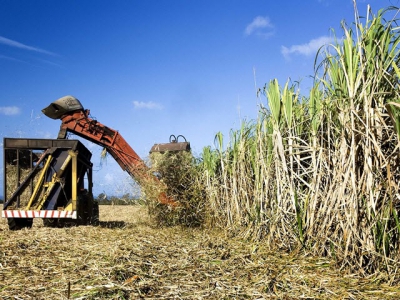Appropriate policies needed to boost agricultural by-product efficiency

About 157 million tonnes of agricultural by-products are churned out throughout Vietnam annually, most of which are burned or discharged into the environment, causing waste and environmental pollution. These by-products could be recycled and Vietnam needs to have proper policies to increase their efficiency.
Agricultural by-products should be turned into high-value products such as dietary supplements and cosmetics
Waste of agricultural by-products
Nguyen Thi Thien, Director of the Thai Hung Thinh Joint Stock Company, said her company has a farm in Binh Phuoc Province, part of which is raising 500 pigs per batch using biological products for waste treatment. Over the past five years, the farm has never experienced pig epidemics and related environmental pollution, Thien said. According to her, durian skins can be processed into activated carbon and wood vinegar for use in agricultural production, and farms can use coconut tree-based products and intercrop coconut with shrimp farming to increase income.
According to data from the Ministry of Agriculture and Rural Development’s Department of Livestock Production, the amounts of post-harvest agricultural by-products are large: 42.8 million tonnes of rice straw, 10 million tonnes of corn stalks, 3.6 million tonnes of vegetables and fruits, 3.1 million tonnes of cassava stalks, 3.1 million tonnes of cashews, and 6.1 million tonnes of other by-products. By-products of farm produce processing include 8.6 million tonnes of rice husks, 3.5 million tonness of bagasse, 1.4 million tonnes of corn cobs, 1.3 million tonnes of cassava skin and two million tonnes of other by-products. Only 52.2 percent of the cultivation sector’s 88.9 million tonnes of by-products are sold or purchased, while the rates of livestock, fishery and forestry sectors are 75.1, 90 and 50.2 percent, respectively.
Department of Livestock Production Deputy Director Tong Xuan Chinh said the rice straw collection, packing, transport and purchase and sale market will grow, yielding an average of VND550,000 per hectare of rice for farmers from selling post-harvest straw.
Circular agriculture
Prof. Dr. Vo Tong Xuan said collection and reuse of agricultural by-products not only helps reduce greenhouse gas emissions but also helps farmers increase income. Vietnam's seafood by-product processing industry has reached only U$275 million, and if all of the almost one million tonnes of the fishery industry’s by-products are processed into dietary supplements and cosmetics, using high technology, the revenue will probably increase to US$4-5 billion, Xuan said.
Each year, agricultural, forestry and fishery production churns out 157 million tonnes of by-products, most of which are burned or discharged into the environment. Prof. Dr. Nguyen Quang Thach, Director of the Vietnam Academy of Agricultural Sciences’ Institute of Biology says advanced technology needs to be applied to agricultural by-products processing, and the 157 million tonnes of agricultural by-products should be an extremely valuable source of raw materials and help develop a circular agriculture.
Economists say Vietnam needs to adopt policies encouraging investment in agricultural by-products processing in order to add value to agricultural products and by-products. The policies include those that encourage application of circular agricultural production processes, including open circulation – connecting different stages – and closed circulation for green growth and sustainable development. Efforts need to be made to improve the efficiency of research, development and application of technology in agricultural by-products processing, and research, development, transfer and application of advanced and clean technologies.
Tran Thanh Nam, Deputy Minister of Agriculture and Rural Development:
The agricultural sector needs to focus on fully exploiting agricultural by-products to turn them into materials for different industries, and use them to develop a circular agricultural chain.
Related news
 Export of farming products falls due to container shortage
Export of farming products falls due to container shortage Due to a lack of empty containers, exports of many agricultural products continued to decline sharply in January.
 Vietnam to increase domestic coffee consumption
Vietnam to increase domestic coffee consumption As coffee export was forecast to face many difficulties this year, the industry would promote the domestic consumption as an important solution to reduce export
 Fruit specialties in the South-western region
Fruit specialties in the South-western region New varieties of seeds put in production have brought the yield of planted forests from less than 10m3/ha/year in the period before 2000-2010 to 15-20m3/ha/year
 An Giang to quadruple area planting vegetables, fruit trees in next decade
An Giang to quadruple area planting vegetables, fruit trees in next decade The Mekong Delta province of An Giang has set a target to quadruple the area planting vegetables and fruit trees in the next decade compared to the current area
 Deep processing creates high-value agricultural products
Deep processing creates high-value agricultural products Deep processing of agricultural products have helped farmers of the countries where do not have favourable conditions for agricultural production such as Japan